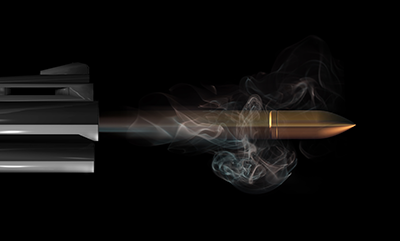SPH Secures Federal Grant to Gauge Impact of Gun Laws by Race, Ethnicity.
 A research team from the School of Public Health has received a $610,000 federal grant to examine how various state-level gun laws affect white, black, and Hispanic populations.
A research team from the School of Public Health has received a $610,000 federal grant to examine how various state-level gun laws affect white, black, and Hispanic populations.
The study, funded by the Justice Department’s National Institute of Justice (NIJ), will examine data over a 25-year period, 1991 to 2015, to compare the effectiveness of firearm-related laws in urban and non-urban locations for both stranger and non-stranger homicides. The research aims to identify strategies to lower homicide rates and reduce disparities in gun violence among diverse racial and ethnic communities, said lead researcher Michael Siegel, professor of community health sciences.
“There is almost no previous research that has examined the impact of state firearm laws separately for different racial and ethnic groups,” Siegel said. “Given the huge disparity in firearm deaths, especially among the African American population, it is critical for us to determine whether or not there is a differential effect of these laws on firearm violence among communities of color.”
The research will be conducted under the auspices of a new Violence Prevention Research Unit in the community health sciences department. Siegel and co-lead investigator Emily Rothman, associate professor of community health sciences, and other SPH researchers have undertaken a number of studies of gun violence in recent years, including those linking higher gun ownership rates to increases in homicides and suicides and others evaluating state-level gun laws.
In the new study, the team will examine which state laws are most effective at reducing black, white, and Hispanic firearm-related homicides, using a large database of information on state-level homicide rates, gun policies, and other factors related to homicide that the research group already has developed.
With 17 African Americans killed intentionally by guns every day in the US, the rate of firearm homicide among blacks is more than 10 times that of whites. Despite that disparity, little research has been done to evaluate the effectiveness of state policies on reducing gun violence among different racial and ethnic groups. That leaves policymakers and criminal justice practitioners with insufficient data to adopt effective policies for reducing homicides, Siegel said.
During the first year of the three-year project, the group plans to augment that database using information from the FBI, the Centers for Disease Control and Prevention, and the Westlaw Next collection of state laws, in order to expand detailed data across a 25-year period.
Specifically, Siegel said, the group is seeking to “address the limitations of prior studies by accounting for race/ethnicity, the relationship of victim to perpetrator, differences in the types of firearm laws, and variations in police enforcement of the same laws state by state.”
Dean Sandro Galea said the new violence prevention unit would formalize the school’s pursuit of research into the causes and consequences of gun violence. He said he was pleased that the Justice Department had selected BU’s proposal.
“For years now, many of us have been pushing the case that gun violence deserves attention and resources as a pressing public health problem,” he said. “It has been a long fight, and more work remains, but this is a step in the right direction.”
Besides Siegel and Rothman, the research team includes Ziming Xuan, associate professor of community health sciences, and Shea Cronin of Metropolitan College. David Hemenway of the Harvard T.H. Chan School of Public Health is a consultant on the project.
In July, Siegel received another grant for firearm research, from the Robert Wood Johnson Foundation, that will examine gun culture and its relationship to gun ownership, firearm laws, and firearm-related violence.
Besides BU, four other institutions shared in $3.3 million in funding from the NIJ for firearms-related research: Northwestern University ($425,000), to examine how adolescent exposure to guns may predict future gun violence and victimization; the City of New York and Center for Court Innovation ($585,000), to examine the causes of gun use among high-risk youth; Harvard College ($654,910), to study police shootings; and the University of California–Davis ($1,048,000), to study the effects of law enforcement intervention to recover firearms from individuals who legally purchased them but subsequently become prohibited from owning them.